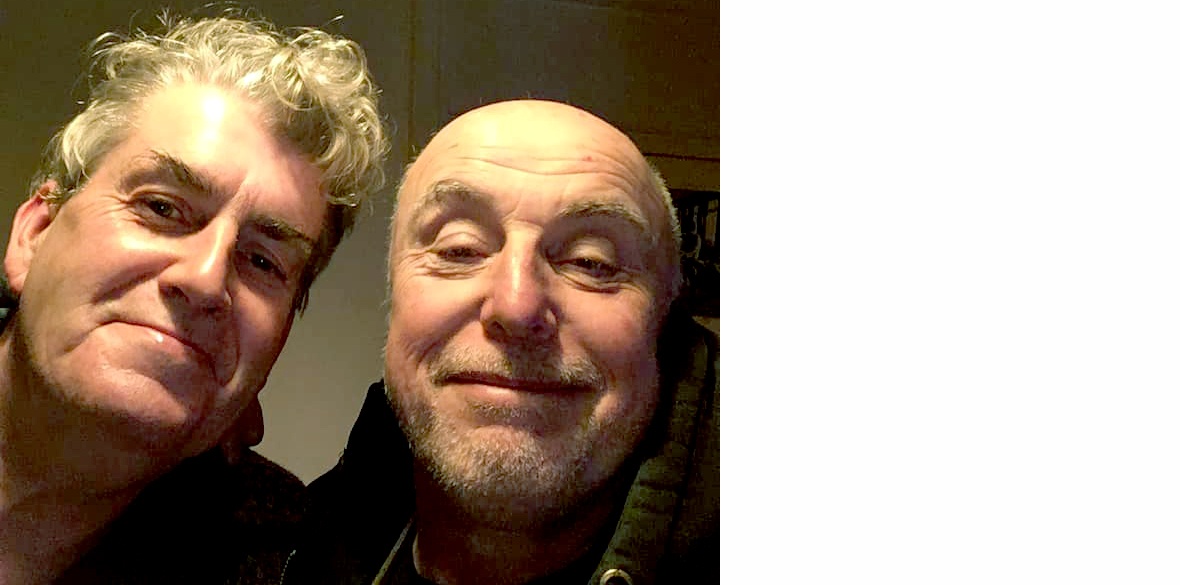This is the last article you can read this month
You can read more article this month
You can read more articles this month
Sorry your limit is up for this month
Reset on:
Please help support the Morning Star by subscribing here
LAST weekend a good friend of more than three decades left this world at the age of 56. He changed the culture of his homeland for ever by using his native language to compose lyrics and music totally unlike anything which had gone before and, in doing so, inspired two generations — so far — to follow in his footsteps.
His name? David R Edwards. His band? Datblygu, Welsh for “evolution,” “progress” or “development.” And never was a band better named.
In the rest of Britain, unless you are an aficionado of the John Peel Show, speak Welsh or are seriously into independent music, you probably won’t have heard of him. In Wales, he is sufficiently revered for his death to be headline news, Labour Senedd leader Mark Drakeford to issue a statement sending condolences and Plaid MP Ben Lake to propose an early-day motion in his honour.
In the mid-1980s, I’d been in touch with Rhys Mwyn, leader of pioneering Welsh language punk band Anhrefn (Disorder) and he invited me to do some gigs in deepest Wales. It was at the very beginnings of an alternative music scene which would take the language out of its cosy space in the world of Eisteddfods, choirs and folkies and thrust it into the maelstrom of punk and John Peel.
I love foreign languages, speak French and German, and Welsh, with its mutations and seemingly impenetrable roots, had always fascinated me. With great gusto, guided by Rhys and Anhrefn, I performed my English verse to welcoming crowds in an embryonic new world containing the likes of Y Cyrff (The Corpses, later to become Catatonia) Traddodiad Ofnus (Frightened of Tradition), The Fflaps and Elfyn Presli a’r Massey Fergusons, neither of which need translating.
One evening, in a church hall somewhere in the middle of nowhere, I did a gig with Datblygu. There were just two of them — singer David R Edwards, instrumentalist Patricia M Morgan and a drum machine. Both have a middle initial tribute to Mark E Smith, although they really don’t sound like The Fall.
They were simultaneously gorgeously tuneful and confrontationally atonal. Every song was different and this, combined with a language ideally suited to David’s sometimes soaring, sometimes sardonic, delivery meant they were completely unlike anything I had ever heard before.
At the end of the gig, or maybe before its end, David jumped off stage and ran off down the road. Such was the experience I had just witnessed, it seemed completely logical.
I was transfixed. Anhrefn were the Welsh Clash. Datblygu were the Welsh... God knows. I absolutely loved them and in the spirit of cross-border cultural co-operation invited them to do their first-ever gigs in England in 1986. They went down a storm at The Square in my then adopted home town of Harlow and thus began a friendship with David and Rhys spanning 35 years.
Datblygu’s most prolific period was in the 1980s and 1990s, when they produced a trio of albums: Wyau (Eggs), Pyst (Post) and Libertino which are regarded as a milestone in the development of Welsh-language music. The likes of Gryff Rhys and Cerys Matthews now eulogise them and John Peel said that Datblygu’s lyrics were the best reason to learn Welsh.
Everyone said what a fantastic writer he was but there were no English translations of the lyrics and that frustrated me, so it was time to have a go. Rhys taught me my first Welsh phrase, “Fy nethau yn ffrwydro gyda mwynhad” (“My nipples explode with delight”) and from then on I did my best. Random Datblygu lyrics and the bilingual road signs I drove past on my regular visits to Wales became my Welsh textbooks.
But David’s wondrous words were beyond me and I had to settle for making up my own: “Dim pel-droed yn y eglwys. Dim heddlu yn y defaid” (“No football in the church. No police in the sheep.”)
But then, a few years ago, Ankst Records released a triple CD set of the three albums mentioned above, with all lyrics translated and David’s wonderful, surreal, sardonic and contradictory world opened up to me like a flower.
Old school folkie Daffyd Iwan being rained on in a Plaid Cymru meeting in a hall with a leaky roof. Welsh Language Society members who “holiday in Brittany, never in France — in the Basque Country, never in Spain” — there were contradictions not just in the words but in the man.
Here was a writer passionate about his native language who opposed Welsh independence, voted Labour and supported Chelsea; I argued with him a lot about that. While remaining creative all the while, he battled with mental and physical health problems for 30 years, living on the streets of his home town Cardigan for a while before being taken into psychiatric care.
I visited him there, then in his sheltered accommodation in Carmarthen and finally in his flat next to Carmarthen Town’s football ground. It was that last time, just before lockdown, when I took the picture above.
He looked healthier and happier than he had for ages, talking about plans for Datblygu’s recently released album, Cwm Gwagle (Void Valley).
And now he’s gone. He leaves behind a wonderful legacy. And he loved the Morning Star.
Nos Da, cymrawd.
Gutted.











